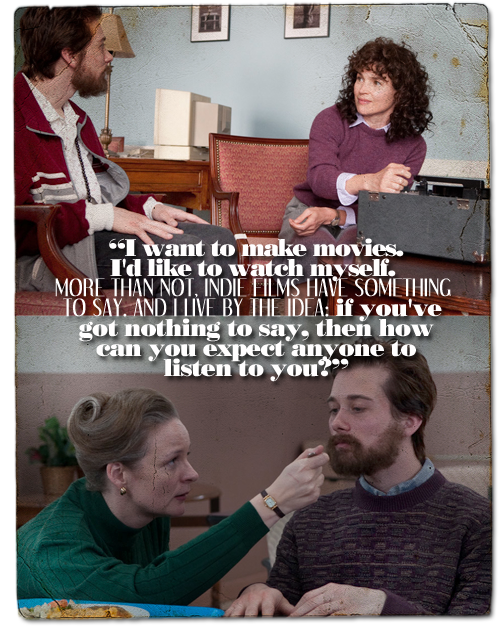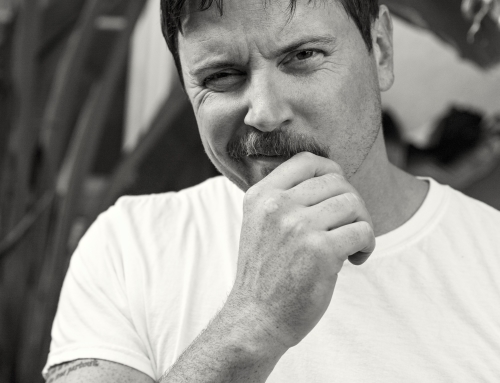Let’s be honest: those amongst us able to list the dates of the world’s major revolutions and wars, or reel off the mathematical equations that decrypt life, nature and planet are, for better or worse, in the minority. Facts must be taught with vigour and retained with practice like most things in life; perhaps all things in life but music.
In some miracle of osmosis, music seeps into the crevices of our memory. The reason why the band Franz Ferdinand sounded faintly familiar the first time you heard the name escapes you, while the chorus to Cindy Lauper’s “Girls Just Want to have Fun” has long and will forever be engraved into the walls of your unconscious, right alongside Bon Jovi’s “Living on a Prayer.”
In Jim Kohlberg’s 2011 official Sundance selection The Music Never Stopped— based on The Last Hippie by Oliver Sacks, M.D. and in theatres across North America this month — the phenomenological properties of music, and the almost freakishly enduring grasp a song can have on one’s memory, are explored through the brain trauma of its lead character Gabriel Sawyer, played by Lou Taylor Pucci.

We meet Gabriel — a brain tumour patient — post-surgery in a near-catatonic state. Having damaged the area of the brain responsible for creating long-term memories, he is left with a rare case of amnesia that muddles past, present and future into the year 1968, while living in a time over a decade after the era of Vietnam, flower power, and psychedelic music. With Gabriel in need of care, the hospital contacts his parents, Henry (J.K. Simmons) and Helen (Cara Seymour), from whom he has been estranged for the last decade. Wanting to recover the relationship with his son, Henry seeks the help of music therapist Dr. Dianne Daly (Julia Ormond), who uses songs from Gabriel’s past to excavate his lost memories. Classic tracks from era icons Bob Dylan, The Beatles, Crosby Stills & Nash, and, Gabriel’s favourite, the Grateful Dead, reawaken memories of past joys and sadness, oiling the wheels of his mind, enabling him to make new memories, and ultimately reopening the paths of communication between him and his parents.
A story of redemption and unbreakable family ties, The Music Never Stopped is a thoughtful, emotional, and at times funny glimpse into the lives of the all-American dysfunctional family.
I caught up with lead actor Lou Taylor Pucci post-festival to talk about his latest film, Sundance, and life in the industry.

Your acting career essentially started at Sundance with Mike Mill’s cult film Thumbsucker, which you starred in and for which you won the Special Jury Prize for Acting. I imagine the festival must be a little special to you?
[Sundance’s] generosity over the years has been the reason my career has come this far.
Favourite Sundance moment over the years?
My favourite year at Sundance I had three movies playing at the same time. The Informers, Brief Interviews with Hideous Men, and The Answer Man. What a year.But that wasn’t enough. They asked me if I would be interested in being a Juror for the 98 short films they had in competition. I couldn’t say no. They gave me a Juror pass, which was kind of like a Golden Ticket into anything, and I was able to watch 98 shorts and 12 features that year in only 9 days. That was definitely my coolest Sundance experience.
Do you think that beginning your career in independent films, many of which have gone on to become cult classics, set the tone for your career?
Beginning in independent film? I’m still doing independent film! I just want to be a part of movies that touch people’s lives, that they remember because it gave them something WORTH remembering. I want to make movies I’d like to watch myself. More than not, indie films have something to say. And I live by the idea: if you’ve got nothing to say, then how can you expect anyone to listen to you?
You obviously have deep love for independent cinema. What is it about it?
It is the only way to make art on film these days. Indie film still has the ability to teach people something, to give people an original perspective on humanity and how we live together.
You mentioned The Informers, which was based on Bret Easton Ellis’s collection of short stories. What did you think of Ellis’s response to J.D. Salinger’s death: “Yeah!! Thank God he’s finally dead. I’ve been waiting for this day for-fucking-ever. Party tonight!!!”
Not sure. My immediate response is “Who gives a shit?” Another option could be that Ellis has been waiting like many other people to read Salinger’s new works. Now that he’s passed away, the public will finally be able to see what he’s been hiding away writing all this time. Or maybe Ellis just has a first edition autographed copy of Catcher in the Rye and now can finally get his exorbitant bid met on Ebay. Ya never know …











